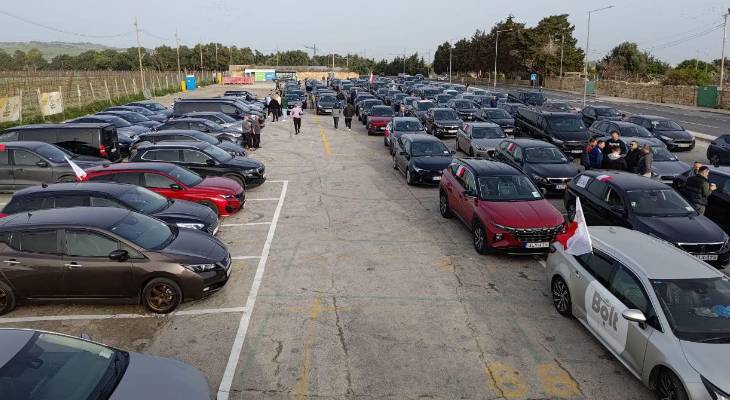Ride-hailing company Bolt has stressed that shifting the burden of cab drivers’ increasing costs to consumers in the form of increased prices is not a sustainable solution for the market.
This comes after Y-plate drivers belonging to the Light Passengers Operators Association (LPOA) performed a slow-moving carcade protest on Wednesday (today). The cab drivers gathered in Ta’ Qali at 8am, before driving to Marsa in a bid to protest against pricing models imposed by the digital platforms that source their clients.
The protest passed through Attard, Mosta, Naxxar, San Ġwann, Swieqi, Sliema, and Msida, ending in Marsa, at a parking area close to Transport Malta’s offices. The industrial action was peaceful, yet reports indicate that there were countless areas in Malta that suffered from heavy traffic for large parts of the morning.

The LPOA protest on Wednesday / Facebook
On Tuesday, ahead of the protest, Bolt, Uber and eCabs, Malta’s three major ride-hailing companies, stated that they want to improve the standard of work for cab drivers and that their priority is to ensure a “safe and reliable” ride-hailing industry for all stakeholders.
Following the protest, a spokesperson for Bolt told this newsroom that while the company “actively invests in campaigns to align pricing expectations between riders and drivers,” it also acknowledged that drivers and fleets are facing escalating operational costs.
They remarked that such challenges “extend beyond the realm of an intermediary booking platform,” and that “shifting the burden of operators’ increasing costs onto ride prices would not be a sustainable solution for the marketplace.”
Taxi and ride-hailing services in Malta have experienced a revolution over the past few years, with a number of new players entering the industry, some failing to survive for more than a few months. Competition within this industry has risen at a rapid rate, with industry experts stating that Malta has approximately one ride-hailing service for every 50,000 people. This is extortionate when compared to New York for example, which has around one ride hailing service per 1.9 million people.
This intense competition has led to the companies offering substantially lower prices, with trips on certain occasions going as low as €5 and possibly less. Given the commission that cab drivers have to pay, together with insurance premiums, fuel, garage rentals, and car service, drivers say they are left with barely any income.
The Bolt spokesperson stated that it actively works with Government institutions to adhere to local and international standards and regulations, doing so to “ensure that the industry grows to its full potential, sustainably.”
They added that the company is working to improve the “holistic driver experience” and to “provide the support they need to be successful in their businesses.”
“We will continue to listen, analyse, and innovate our services to the benefit of our drivers and passengers,” the spokesperson affirmed.
